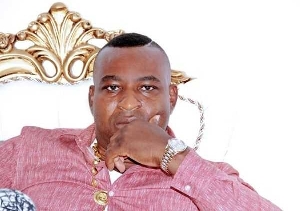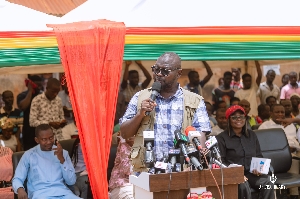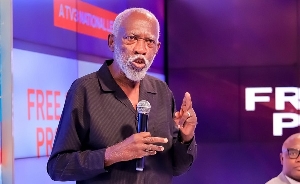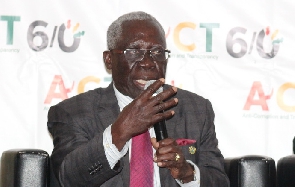Details of a secret meeting held by ex-President John Kufuor and the current US ambassador to Ghana, Donald Teiletbaum, have disclosed that Mr. Kufuor literarily cried over the withdrawal of his luxurious ex-gratia which proved too expensive for a third world poverty-stricken nation like Ghana. The benefits had to be repackaged by President John Evans Atta Mills.
The revelation which is captured in one of the leaked documents from the American Embassy in Accra to Washington, recalls how the Mary Chinery-Hesse Presidential Committee on Emoluments, set up by Mr. Kufuor, was for merely cosmetic purposes, and how Parliament was also reduced to a rubberstamp body by the erstwhile New Patriotic Party (NPP) regime.
According to the US Ambassador, ex-President Kufuor through a phone call, personally invited him to a meeting on March 13, 2009, at which he expressed “his frustration at how he feels he has been treated by the media and the new government”, over the matter of the ex-gratia, which was debated behind closed doors minutes before parliament was dissolved.
This revelation casts a slur on Mr. Kufuor’s position, when he appeared on Metro TV’s current affairs programme “Good Evening Ghana” saying that “Wikileaks is no better than hearsay and hearsay is not the best evidence for a lawyer to stand on to be used in any case.”
Mr. Teiletbaum wrote: “The legislation provides for a generous retirement package for the outgoing head of state. The former president is entitled to receive an annual, non-taxed pension of Ghana cedis (GH¢) 55,000 (USD 40,000).
He receives a fully furnished house in Accra, and another at a location in Ghana of his choosing. These houses are to stay with the President’s family, and do not revert to the state. Residential support staff are provided, as is a fully-equipped office with five staffers and secretarial support, all provided by the GoG.
“For travel, the former president is to receive six cars (3 saloon, 2 SUV’s and an all-purpose vehicle) for his use, with insurance, maintenance and fuel provided by the state. He is allowed paid overseas travel for up to sixty days per year for himself, his spouse and three staff (5 star accommodation, first class travel), plus entertainment expenses (not specified) to be paid for by the State Protocol Office.
The package also includes an ex-gratia award of over GH¢ 440,000 (USD 315,000) for a single four-year term, and another GHC¢ 221,000 (USD 158,000) for the second term.
“Finally, the president is allowed a USD 1 million contribution of seed money for the creation of a presidential institute or foundation. Econoff estimates the total value of the package to be worth less than USD 2 million in cash, and under USD 2 million equivalent for the properties, travel and other non-cash benefits over a decade of retirement”.
Ambassador Teitelbaum revealed that ex-President Kufuor, complained about criticism from the new government and the media, of his administration over Ghana’s developing budget crisis with respect to the ex-gratia spelt out for him by his advisor, Mrs. Mary Chinery-Hesse.
At the meeting, the ambassador said he observed that Mr. Kufuor, “like other recently-retired leaders, was learning that, fairly or not, a new government will blame the previous government for the difficulties they inherit”.
Mr. Kufuor, the diplomat further revealed, was also worried about reports that youth organizations were threatening to gather outside the government-owned bungalow he occupied as an office in Accra’s Ridge neighborhood, according media reports that the Ga-Dangme Youth Association had made plans to rally outside the building to protest Kufuor’s use of the building.
The Ga-Dangme Association, prior to the 2008 election, protested outside a nearby property occupied by a former NPP minister (Jake Obetsebi-Lamptey), that is opposed to the expropriation of traditional Ga lands by non-Ga.
The Mary Chinery-Hesse Committee, which was established in 2004, issued its report in December, 2008. The report recommended a number of retirement and ex-gratia benefits for the retiring President and departing Cabinet Ministers, senior members of the government and Members of Parliament.
On January 6, the outgoing Parliament, at its last sitting before adjournment, approved the emoluments package. Parliament’s approval of the proposal met with quick public criticism, both as to cost to Ghana’s economy.
Some members of the NDC shared in the criticisms. President Mills’ candidate for Minister of Works, Moses Asaga, came under attack for his role in passing the legislation (his interest being benefits for retiring MPs), and President Mills withdrew Asaga’s name from cabinet consideration.
Public opinion remains strong against the package, with a recent opinion poll showing that 90 percent of those surveyed, were against the proposal.
The media provided extensive coverage about how former President Kufuor’s office came to be located in a government-owned building. There are conflicting reports as to whether Kufuor sought approval to use the building, and whether approval was necessary, at all.
The debate between Kufuor’s office and that of the President and who said what and when, continued for several days. At the time of the meeting, “Kufuor’s office remains in the government bungalow in Accra’s government district”.
Mr. Kufuor has since been kicked out from the bungalow, which reports said included the state-of-the-art furnishing—beds imported from Italy and South Africa, with funds from the Research Department, Ghana’s version of the Central Intelligence Agency (CIA).
Expressing his opinion after the meeting, Mr. Teiletbaum said that “Ghana’s governance would have been better served if it (the ex-gratia) had been open to public input and debate, adding that Ghana’s presidential retirement package is generous, but the generosity serves a purpose.
“Ghana’s constitutional democracy is still young, and while the last election showed Ghana is able to handle stress, it is still an evolving process. A system that provides a clear incentive for the head of state to retire, in dignity and with the potential for future, non-elective public service, may be enough to discourage future third-term cravings”.
This, he explained, was because “a president receives a relatively low salary while in office, but is paid well to leave office, as planned, at the end of two terms”.
The confidential document said that “the Ambassador will seek an opportunity to raise the issue with President Mills. The Ambassador will note that the details of the package are for Ghanaians to decide, but that allowing youth groups to harass a former President would set a very negative precedent”.












